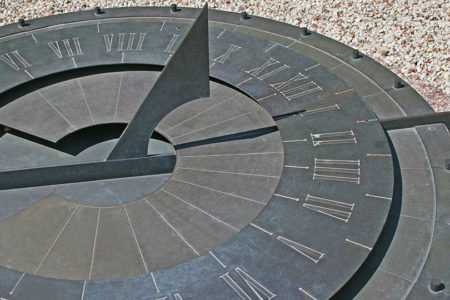Literal or Nonliteral? That Is the Question
For several decades it has been fashionable in many quarters to insist that the early chapters of Genesis, which describe the creation of the world, must not be considered a literal record of actual history. The claim is that the events are better understood as allegorical representations of grand metaphysical realities—cunningly devised fables that may be mined for spiritual truth but that are not historically viable.
Various alternative readings of the creation account reject the historicity of the narrative based on some supposed syntactical or theological insight. Among those alternatives are the Day-Age Theory; the Gap Theory; and, more recently, the Framework Hypothesis. All these nonliteral readings are motivated by a determination to reconcile the scriptural record of creation with the demands of uniformitarian scientism. That is, they seek to understand the Bible within the limitations of secular metaphysics that deny the possibility of supernatural/divine intervention.
How we view Genesis, however, is critical because, as the name suggests, the book is God’s clear and absolutely true instruction concerning the origin of all that exists in the physical and moral universe. And out of that truth arise all the issues of life.
John Gibson argues that Genesis 1 is to be taken as a metaphor or story or parable. He claims, “If we understand ‘day’ as equivalent to ‘epoch’ or ‘era’, we can bring the sequence of Creation in the chapter into relationship with the accounts of modern evolutionary theory, and so go some way towards recovering the Bible’s reputation in our scientific age.”1
In similar fashion, progressive creationist Stuart Briscoe insists the following in his popular commentary on Genesis:
The natural scientist talks convincingly in terms of millions of years and evolutionary eras while the Bible believer looks at the six days and wonders what on earth to do….It is not at all unreasonable to believe that “day” (Hebrew, yom), which can be translated quite literally as “period,” refers not to literal days but to eras and ages in which God’s progressive work was being accomplished.2
What Is a “Day”?
Basic to the entire debate regarding the historical integrity of the creation account is the question, “How is the word day[s] to be understood?” Genesis 1:5, for example, reads, “God called the light Day, and the darkness He called Night. So the evening and the morning were the first day.”
The point is often made that the Hebrew word for “day” (yom) can be used in more than one sense. This is true.3 But that fact does not mean that, in any given passage, the word might have any one of several meanings and that the reader is free to use whichever meaning he prefers. It is basic to grammatical-historical interpretation that the meaning of every passage is determined and fixed by the author, and it is the business of exegesis to arrive at that intended meaning.
It is hard to imagine how God might have provided any more definitive evidence to compel readers to conclude that, in Genesis 1, day means a literal 24-hour day and that the week of creation was a literal seven-day week. Two most basic arguments to defend this position are these:
- A numerical qualifier and the phrase evening and morning occur with each of the six creative days (1:5, 8, 13, 19, 23, 31). This fact is exegetically significant because the rest of the Old Testament uses yom 359 times with a numerical qualifier; and every one of those cases denotes a literal day. Again, throughout the rest of the Old Testament, yom is used in association with either evening or morning 23 times; and the phrase evening and morning is used without yom 38 times. Each of those 61 passages refers to a literal 24-hour day. There is no reason to make the text of Genesis 1 an exception to this remarkably well-attested-to pattern.
- In Exodus 20 Moses traced the command “Remember the Sabbath day” (v. 8) to the historical reality that “in six days the Lᴏʀᴅ made the heavens and the earth,…and rested the seventh day” (v. 11). The one-to-one analogous relationship between the days of an ordinary week in the lives of the Israelites and the days of the week of God’s creative activity is basic to the way the Fourth Commandment is expressed in that passage. Indeed, if the days of the creation account are taken as eons of time, the statement recorded in Exodus 20:11—a statement spoken aloud by Yahweh Himself (vv. 1–21)—is reduced to a cosmic non sequitur. Yahweh then spoke illogical nonsense!
Old Testament scholar Gerhard Hasel concluded,
The author of Genesis 1 could not have produced more comprehensive and all-inclusive ways to express the idea of a literal “day” than the ones that were chosen….The combinations of the factors…corroborated by the divine promulgations in such Pentateuchal passages as Exodus 20:8–11 and Exodus 31:12–17, suggest uniquely and consistently that the creation “day” is meant to be literal, sequential, and chronological in nature.3
What’s Really at Stake
Those who deny that Genesis 1 is literal history insist there are important metaphysical truths to be quarried from the supposedly mythical/metaphorical account. But once you abandon literal interpretation, determining what those truths are becomes the reader’s prerogative. The text becomes a wax nose to be bent into this shape or that, depending ultimately on the predilections of the one doing the bending.
On the other hand, if the historical integrity of the creation narrative is care-fully honored, that narrative will confront the reader with truths at once undeniably valid and unspeakably important.
The omnipotence and omnisapience of the Creator God who spoke the worlds into existence; the ineffable majesty of that Creator God by whom and for whom all things were created and who is thus perpetually worthy of worship and service; the unique, intrinsic, and ineradicable dignity of mankind based on the reality that man alone is created in the image and likeness of God; the wisdom and goodness of God manifested in His creation of male and female and in His crafting each to play the distinct role He has equipped them to embrace and enjoy; the reality of man’s sinful condition and consequent condemnation, as well as his responsibility for that moral corruption—all of these truths and many more are clearly and undeniably taught in the early chapters of Genesis when they are read as literal history.
But if the divinely provided record is construed as mere myth and metaphor, all of these truths become subjective at best and suspect at worst.
Ultimately, alternative readings of the creation account do something else as well. If we take away the first Adam, we have no right to trust what God has told us about the Last Adam—Jesus Christ, His Son.
ENDNOTES
- John C. L. Gibson, Genesis (Edinburgh: The Saint Andrews Press, 1981), 1:55.
- Stuart Briscoe, The Communicator’s Commentary: Genesis (Waco, TX: Word Books, 1987), 36-37.
- Gerhard F. Hasel, “The ‘Days’ of Creation in Genesis 1: Literal ‘Days’ or Figurative ‘Periods/Epochs’ of Time?” Geoscience Research Institute <grisda.org/origins/21005.htm>.







